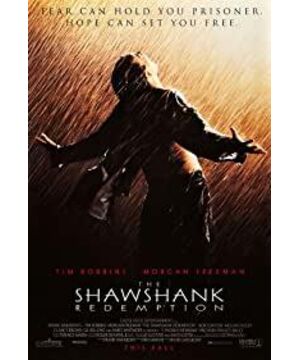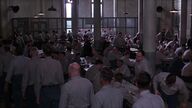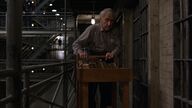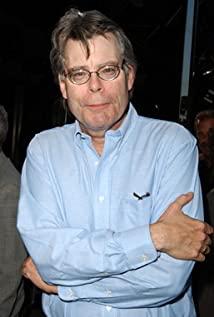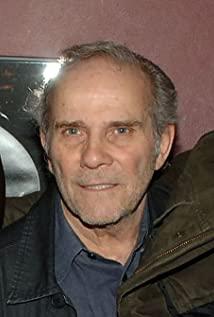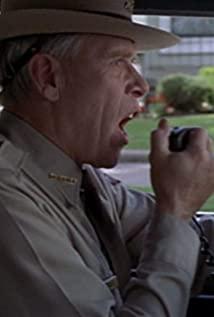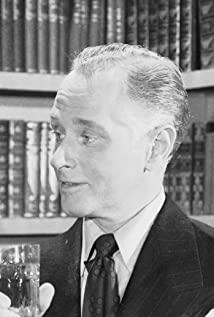"Shawshank's Redemption" is undoubtedly a good film, with no movements, no special effects, and even no beauties, but it still impresses the audience, and has been fascinating over the years. What does it rely on to attract the audience? Some people say it is because it reflects the "resilience of human nature." Indeed, with a small hammer, in the past 20 years, a small escape tunnel was dug in a fascist prison with extremely strict personal control. Doesn't this reflect people's tenacity? However, this plot is obviously dramatic. This is only the director's need for plot arrangement. This ending is only to reflect the success of Andy's "self-salvation", otherwise the entire plot and theme will be unsustainable. So some people think that the film actually reflects how precious "hope" is to people. Yes, there are many places where "hope" is directly mentioned in the film. For example, Andy said in a letter to Reid after he escaped from prison: "Remember, Hope is a good thing, maybe the best of things and no good thing ever dies." Perhaps this is what the work and the director want to tell the audience. "Fear can hold you prisoner, Hope can set you free." This sentence has become famous.
"Shawshank's Redemption" touches people not only here. In a prison, the prisoners and officials in it seem to be the faces of all living beings in this society. Warden Norton is aloof, usually polite and memorable to the Bible. In fact, he is cruel, insidious, and greedy when grabbing benefits. Guard Captain Hadley and other prison guards were fierce and brutal, acting as Norton's thugs and slashing the lives of prisoners. Do they resemble the real power in the audience? The audience can be called the ruler of the "small society" of prison. The prisoners are also different. Apart from the protagonist Andy, Rhett is of course the key character. He is the clue of the whole film. In fact, there are not many dialogues in the whole film. Many things that the film wants to show are through Rhett's monologue. Speaking out, most of them are Reid's reflection and summary of prison life and his interpretation of Andy.
Librarian Brooks, this is a very shocking role. The life of Lao Bu profoundly reflects the life of people under "institutionalization." After spending most of his life in prison, he was finally released on parole and gained freedom, but once he left the familiar environment and familiar people, he couldn't feel his own value and couldn't find his place. He had physical freedom. But in fact, his soul has long been strangled by the prison, and the world that belongs to him has been compressed to the smallest. In the end, he can only choose to disappear from this world that does not belong to him at all. Why arrange for such a character as Lao Bu? It may be that the director wanted to tell the audience that if Andy hadn't appeared, Old Bu was the future of Reid and most other prisoners. Is he also like the future of many people in the audience's real life? Andy, the protagonist of the audience, he is a real person. Reid can be said to be a "Strong man", and Andy is a "Great man". He is not only redeeming himself, but he also makes every effort to save the prisoners' souls. In fact, the plot of the whole film about him digging a tunnel to escape is so precious that the scene of Andy's escape feels quite abrupt, which shows that the magical escape is not the subject of the film. And Rhett told the audience that Andy did not run away immediately after digging the tunnel. He finally left because Tommy's death made him see the cruelty of the Nortons, and that he was unable to redeem the others. prisoner. In other words, even though Andy was ready to escape from prison, he did not immediately escape, even though he had a desperate desire to embrace freedom-after he escaped from prison, he stood in the creek and embraced the wind and rain. , I believe the audience will be impressed, but he still chooses to stay in prison to help those "hopeless people."
The film mainly describes this aspect, which is why the film is called "Shawshank's Redemption" instead of "Andy Dufrey's Redemption". Andy used his expertise to launder money for the Nortons, fighting for the prisoners' limited rights and spiritual space. For example, when Andy used his wealth management expertise to do things for Hadley for the first time, all he asked for was to ask Hadley to invite friends. We drank, he didn’t drink it himself. He smiled and watched Rhett and Hewood drink. Others didn’t understand why Andy did this, Rhett understood, because at that moment Andy let him and others enjoy the feeling of freedom. Another example is building a prison library, teaching Tommy literacy and helping him take exams, and so on. The most impressive thing is that he used the prison radio to broadcast the scene of "Le Figaro's Wedding" for everyone. That plot very appropriately reflects that Andy's salvation is indeed meaningful to the prisoners in the prison. Andy is also a true redeemer. Especially, when Norton and Hadley stood outside the door to warn Andy, Andy smiled and adjusted the volume of the phonograph to the highest level. The terrible punishment was outside the door, but Andy did not flinch. This is a true brave man, a great man, so that it makes people feel that Andy came to prison not as a prisoner, but as a redeemer.
What on earth is "Shawshank's Redemption" so moving? First, "Institutionalizing" destruction of humanity. There are long or short hints in many places in the film. The character is as long as Laobu, and as short as Rhett's words. After parole, he can go to the toilet without reporting to anyone, but he is not even accustomed to it, "you can't squeeze a drop of urine." And like other prisoners, for what Andy did, such as making Hadley willingly invite the prisoner to drink beer, play an opera for the prisoner, and even every scene of the conversation with the prisoner, it is the talk of other prisoners. , They think what Andy did is really unimaginable. This kind of plot is reminiscent of Mr. Lu Xun's works. Secondly, the film is mainly about answering the question "What should I do in the face of being institutionalized?" The author focused all the answers that people believed to be correct on Andy. There are four points: First of all, we must keep hope in life and never give up. As mentioned earlier, Andy mentioned in a letter to Rhett after escaping: "Remember, Hope is a good thing, maybe the best of things and no good thing ever dies." There is another plot that also illustrates this point. In the years before he went to prison, Andy was beaten a dozen times by the three sisters of Boggs, but Andy did not sink under such a dark life. The only explanation he could do was that Andy got in his heart. The belief in salvation and yearning for freedom continues to give him hope. Secondly, we must have enough courage. When Andy faced Hadley for the first time, faced the insults of the Boggs, especially when playing operas for prisoners, doing each of these things faced the test of life and death, but he was not afraid. You can't do it without courage. Third, we must have the perseverance to persist in action. With a small hammer that can be hidden in a book, it takes nearly 20 years to dig a tunnel to freedom. Without perseverance, it is absolutely impossible. In addition, insisting on writing to the State Assembly for funding for six years as a day, and building a library for prisoners is also a plot that reflects this point in the film. The fourth is to have the wisdom of action. Needless to say this point, I believe that watching the full movie, the audience will praise Andy's talent and wisdom in their hearts. His plan was grand and perfect, and the reason Andy was able to complete the redemption and punish Norton and Hadley depended on his wisdom.
The "institutionalization" issues reflected in the film also have a certain significance for Chinese society. The passage in the film, "The prison walls are a bit funny: first you hate them, then you get used to them, and after enough time has passed, you will rely on them. This is institutionalization." It will resonate. The audience are not prisoners living in prisons, but are the audience prisoners in some other form? For people, salvation cannot be just talked about.
The audience likes the eloquent tone and atmospheric rhythm in the film. It seems that this feeling can only be seen in some great works, such as "Forrest Gump". It seems that there are only two kinds of good movies in terms of rhythm, similar to this kind of gentle or the kind of fast-paced to create a tense atmosphere. It may not be too much to say that this is an immortal movie, even if it loses in the Oscar competition, it still cannot change this reality. At least the film is a movie that will not be forgotten after watching it. The film uses a third-person narration to describe everything that happened in Shawshank Prison in the past 20 to 30 years, and from Reid’s perspective, it describes Andy’s actions and Shawshank Prison that was redeemed because of him. A large number of narrations and third-person perspectives give the film a subjective and objective narrative perspective, regardless of which narrative perspective is good, as long as it is used properly, there is no good or bad. Because it's very quiet, it's always quiet, without the slightest smell of mania. The narrator is speaking quietly, and the audience is listening quietly. This is the quietest taste in the gentle taste, and it is undeniable that this taste and the film's redemption theme are so complementary. Therefore, can it also be said that the narrative and theme of the film are so unified that it gives the film that kind of fascinating light. At least, this is a film that uses this kind of narrative properly and successfully. A great and immortal work seems to make the audience think of it immediately when the audience talks about something. For example, when it comes to prison, redemption, hope, hard work, etc., audiences will think of this movie.


